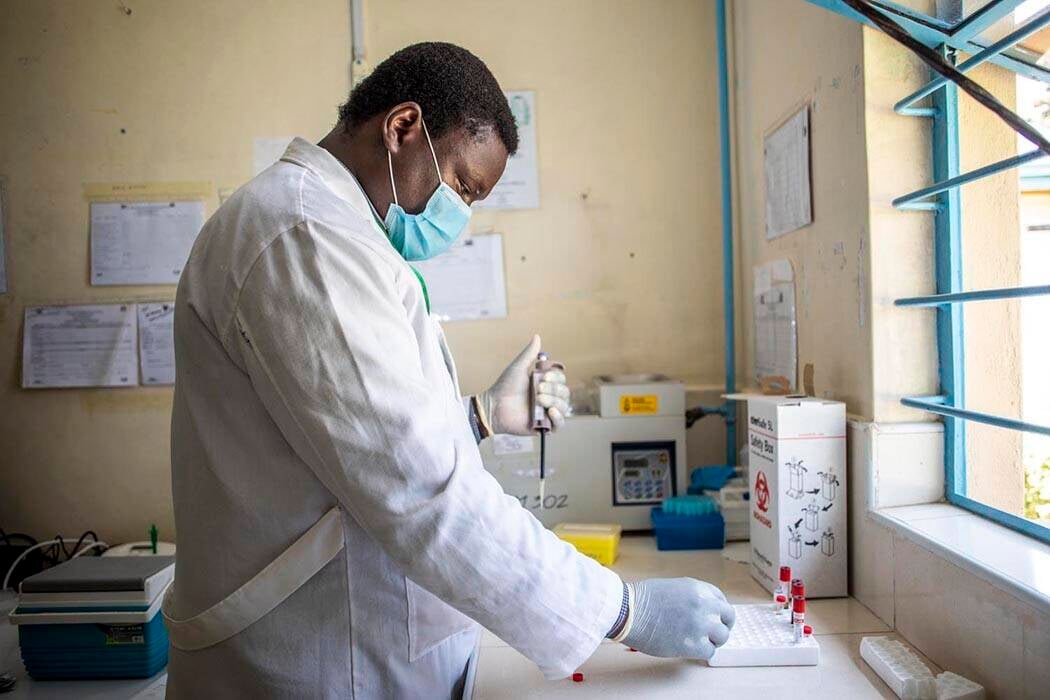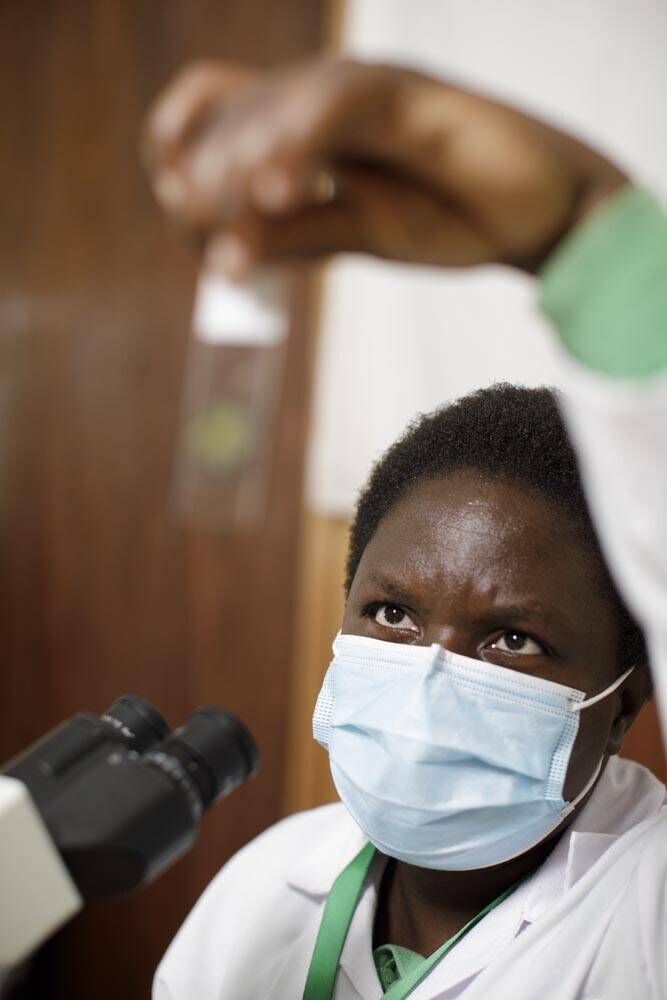
scroll down
Two projects developing treatments for common parasite infections – malaria and leishmaniasis – began recruiting to key clinical trials in 2024.

Ethiopia is also the site of another parasite drug trial launched in 2024. The EDCTP2-funded VL-INNO project is assessing a new oral treatment for visceral leishmaniasis (also known as kala-azar), a disease particularly common in East Africa. Caused by a single-celled parasite, Leishmania, kala-azar is associated with a range of debilitating symptoms and can be fatal if untreated. Around 50–90,000 cases occur each year, half in children under 15 years of age.
Kala-azar has traditionally been treated with a drug requiring 17 days of painful injections administered in hospital. The new treatment, LXE408, is a much simpler oral formulation; it was discovered by Novartis and is being developed in partnership with the Drugs for Neglected Diseases Initiative (DNDi).
The first patient was enrolled into the phase II study in Ethiopia in April 2024, and 36 patients had been recruited by the end of 2024. The study is due to be completed in 2025, with results available the following year.
The first step is to demonstrate that the new tablets have the same biological properties as conventional primaquine products, through a bioequivalence study. Recruitment to this study was completed in Ethiopia in 2024. The DPP team also began recruiting for a phase II study in Ethiopia and Burkina Faso, designed to determine dosage requirements for children of different ages. The team is also engaging with children and caregivers to select the optimal components to mask the taste of primaquine.
Later, the team will carry out an efficacy study in Ethiopia against P. vivax infection and evaluate transmission blocking in Burkina Faso.
Primaquine is an important and often unheralded contributor to malaria control. It has distinctive features that distinguish it from generally better-known antimalarial drugs, such as artemisinin combination therapy (ACT), including activity against Plasmodium vivax, a relative of the more common P. falciparum, and the ability to kill late-stage parasites and therefore prevent transmission.
Because of these features, WHO recommends that primaquine is used alongside ACTs in low-transmission areas to reduce community transmission. However, in practice, primaquine is rarely used for this purpose, mainly because it is not available in a form that can easily be given to children – adult tablets are large and bitter-tasting.
The EDCTP2-funded Developing Paediatric Primaquine (DPP) Consortium is developing new quality-assured and child-friendly primaquine formulations. It aims to produce four smaller tablets suitable for different ages plus a granular formulation, which will include flavourings to mask primaquine’s bitter taste.
Advancing drug treatments for parasite infections